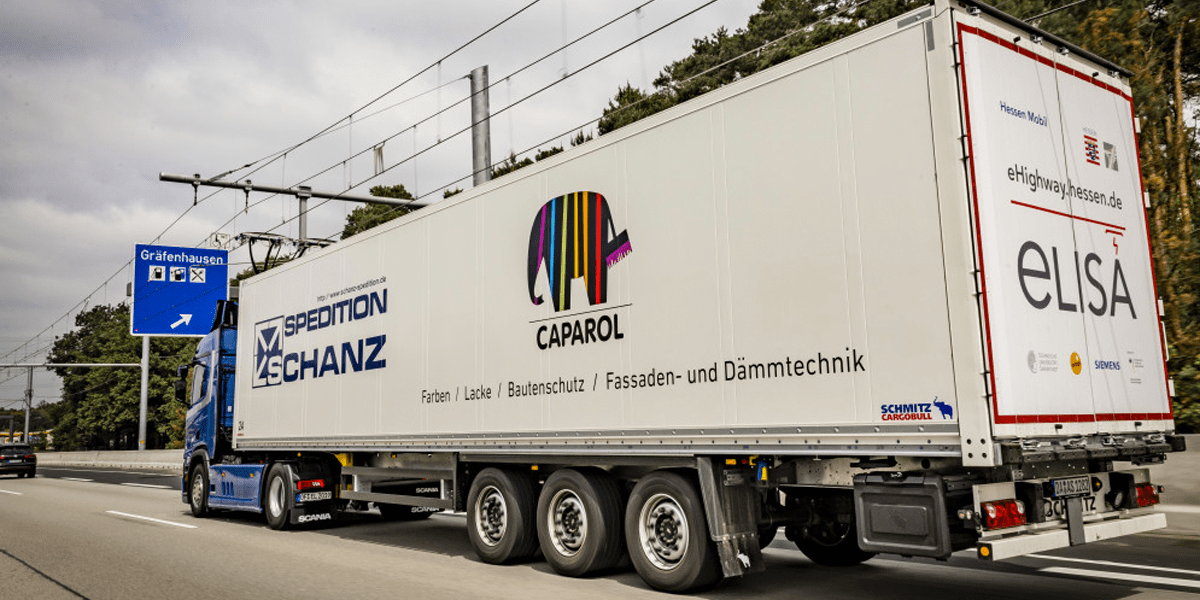Delays in German electric highway project Elisa
Germany’s electric highway project Elisa is experiencing delays. Five cantenary trucks i.e with overhead current collectors are to collect data on the A5 in order to sound out the opportunities for tomorrow’s freight traffic. Less than five months after the start of the project, only two trucks are in operation.
The three remaining trucks will not be put into operation until February, March and June 2020. In the original plans, the Hessian state government had assumed that the pilot project could begin in full as soon as the infrastructure had been completed. Due to the lack of vehicles, however, this is obviously not the case.
“Only at a time when the e-highway test facility in Hesse had already been completed were the delivery dates of the OH (cantenary) trucks announced,” said the Minister of Transport from the German state of Hesse, Tarek Al-Wazir from the Green Party in response to a request from the minority centre-right party, the FDP.
The project partners want to use the retrofitted catenary hybrid trucks from VW subsidiary Scania to collect data on whether and how freight traffic on the roads can be made more climate-friendly – among other things, the effects on traffic, the additional costs for road maintenance and operation as well as the effects on the environment and costs. In southern Hesse, a section of Autobahn 5 between Langen and Weiterstadt was equipped with the appropriate overhead lines for cantenary trucks.
On the busy motorway section near Frankfurt Airport, five freight forwarders were originally to use one hybrid truck each, which would travel the route between Weiterstadt and Langen/Mörfelden several times a day. At least with the first vehicle of the forwarding agency Schanz used in Hesse, there were promising results: In June, Scania stated that after the first 1,000 kilometres evaluated, diesel fuel savings of around ten per cent had been achieved.
The Federal Ministry for the Environment supported the five-kilometre stretch between Langen and Weiterstadt with almost 14.6 million euros. The Ministry is providing a total of around 50 million euros for three projects. There are also delays in the overhead line field test in the state of Schleswig-Holstein: The A1 near Lübeck also lacks suitable trucks. Only one Scania R 450 has been on the road since June, with four more to follow. The remaining five Scania overhead contact lines are planned for a project in the German state of Baden-Württemberg.
automobilwoche.de (in German)


0 Comments